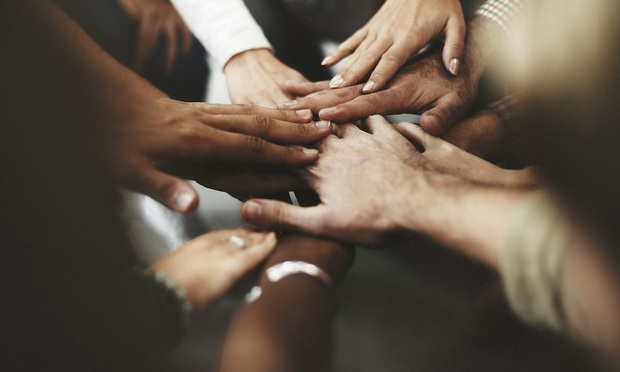 (Credit: Rawpixel.com/Shutterstock.com)
(Credit: Rawpixel.com/Shutterstock.com)
In his book, "Bowling Alone: The Collapse and Revival of American Community," Robert D. Putnam discusses the difference between the "bonding" and "bridging" models of social connection. Our initial tendency is to exclusively "bond" via shared similarities rather than to inclusively "bridge" between people who think and feel differently. A newly released report details an approach to the workplace that comes down squarely on the side of the "bridging" model, calling it "belonging."
In "The Power of Belonging: What It Is and Why It Matters in Today's Workplace," researchers at the Center for Talent Innovation discuss the results of two recent surveys analyzing the "belonging scores" of nearly 3,800 college-educated professionals across a broad range of demographics, and how companies can foster a sense of belonging by "co-creat[ing] company cultures informed by all perspectives."
Related: Diversity, inclusion and belonging: How do we get there?
The report defines a sense of "belonging" as being comprised of four elements:
- Feeling seen for your unique contributions
- Being connected to your coworkers
- Being supported in your daily work and career development
- Being proud of your organization's values and purpose
In the first survey conducted in February, CTI researchers found that on their ten-point scale, half of the respondent workers scored between 6.25 and 8.54, with a median score of 7.40. These scores corresponded with positive career indicators. Workers in the highest quartile of belonging scores were far more likely than those in the lowest to say they were very engaged at work, very loyal to their organization, and intend to stay with their organization for at least two years. Respondents who fell into the lowest quartile of belonging scores were over four times as likely to say they felt "stalled" in their careers compared to those in the highest quartile.
Examining median scores across race and gender, the researchers found White men and White women scored the highest. According to the survey, nearly one in three Black employees and one in four Asian employees said they have felt out of place at work because of their ethnicity or race. More than one in seven Latinx employees said the same. Black women and Asian women scored the lowest median belonging scores.
A follow-up survey in May found that the median belonging score rose from 7.40 to 7.71. A significant majority of respondents said it was easy to open conversations with coworkers about how their lives have changed during the pandemic. The ability to be vulnerable with one another increases feelings of connection and being seen, according to the researchers. Most employees also felt their employers' approaches to work schedules have been supportive and/or flexible, and many said they felt proud of their companies' responses to the pandemic. This upward tick in the scores over just a few months underlines how important it is for business leaders to connect authentically with employees, researchers say, and may even show a way forward as the nation comes to grips with systemic racism.
"We're engaged in a new way of being together at work–and employers shifted to remote work incredibly quickly," said Julia Taylor Kennedy, CTI executive vice president and co-lead researcher on the report. "If that radical change was possible, many are saying, fixing racial inequality is also possible. Of course, the two issues–working from an office building and addressing systemic racism–are different, but our society's swift reaction to the threat of COVID-19 does indicate we are capable of change."
The report describes an ideal culture of belonging as an organization that celebrates its employees, with senior leaders rising in the organization because they live out the organization's values. Such a culture prioritizes building honest, open connections with the larger workforce, while fostering inclusivity among their own direct reports. "Managers throughout the organization reward their direct reports with due praise, acknowledgement, decision-making power, and regular feedback," the report goes on to say. "And colleagues throughout the organization, regardless of level, praise each other's work, take each other's personal commitments seriously, and default to providing support and honest feedback for one another."
"Belonging means you think of your company as 'us,' not 'them,'" said Pooja Jain-Link, CTI executive vice president and co-lead researcher. "To build company cultures that are inclusive, and that boost diversity, we know how important co-creation is. To get those co-created cultures, we need people to be a part of the 'us'—we need them to belong."
This report is the first in a planned four-part series. The panel of advisors on the project includes john a. powell, Professor of Law, African American Studies, and Ethnic Studies at UC Berkeley; Michael Welp, co-founder of White Men as Full Diversity Partners; and Lynne Oldham, Chief People Officer at Zoom.
Read more:
- A tipping point for LGBT policies in the workplace
- Despite diversity efforts, half of LGBT workers stay closeted
- Will Google tie executive pay to workplace diversity?
© Touchpoint Markets, All Rights Reserved. Request academic re-use from www.copyright.com. All other uses, submit a request to [email protected]. For more inforrmation visit Asset & Logo Licensing.






